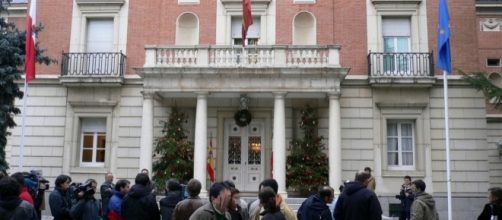More than 300 days without a Spanish government elected didn't affect the growth of #gdp. According to the report of the Autoridad Independiente de Responsabilidad Fiscal (AIReF), Spanish GDP is supposed to end 2016 growing 3,3 %, better than 2015 (+3,2 %), and second only to 2007 (+ 3,8 %) within the last ten years.
The absence of government
The data could be astonishing, considering that from the 2015 December-election till the end of October 2016 (passing through another election in June), the king Felipe VI couldn't find unbelievably a politician able to govern #Spain unifying the various parties.
Finally, Mariano #rajoy, the Pm always in office (till a new government would have been formed) was designed again to lead a new government and he obtained the confidence of the parliament one month and a half ago (after a contrary vote at the end of August).
During those days without a strong guide, the state expenses were frozen and the financial markets could have influenced by the undefined situation. Instead, the reforms made before this unbearable period (such as the restructuration of the banking sector) have proved to be sufficient for the country's following circumstances.
The assurance of uncertainty
Despite some companies didn't invest without knowing which economic policies would have been pursued, Morgan Stanley's analysts bet on Spain: in June it was considered one of the safest countries for investments.
The political impasse didn't cause any risk, apparently. There was an assurance of uncertainty. So the consumption was constantly on the rise, there was a decrease in the unemployment rate and an increasing of touristic flow.
The favourable international conjuncture is only a partial reason. A greater explanation could be the ECB bond purchase program (the Quantitative Easing) which allowed Spain to have funds: Eu actions sedated also the doubts of the global financial markets.
The deeper reason
Yet, the reason is deeper - guessed Mr Nicolas Véron, a senior fellow at Bruegel, the European think tank specialised in economics. He pinpointed the uselessness of the government. "A government is useful when it has the capacity to act and to take difficult decisions," told "Financial Times" on the 5th of September.
Lack of a government isn't worst than a spineless government. "Many European governments - continued Véron - are not making difficult decisions even when they are in power".
Therefore, now Spanish condition isn't so different from last period. The actual government is the weaker of the history of the country. It would negotiate every determination with other parties (out of Rajoy's PP), such as Ciudadanos and Psoe. Rajoy begun increasing the taxes, against what he promised in the 2015-electoral campaign, but following the influence of socialist. The measure has been supported by the Eu and a reduction of the deficit is considered probable in the next year.
The Pm Rajoy would have to manage complicated dossiers: Catalunya independence, jobs market reform, constitutional reform. Hardly it could take important and profound outcomes on these themes. Nonetheless, Imf forecasts a 2,2 % Spanish GDP growth in 2017.
Domenico Mussolino

